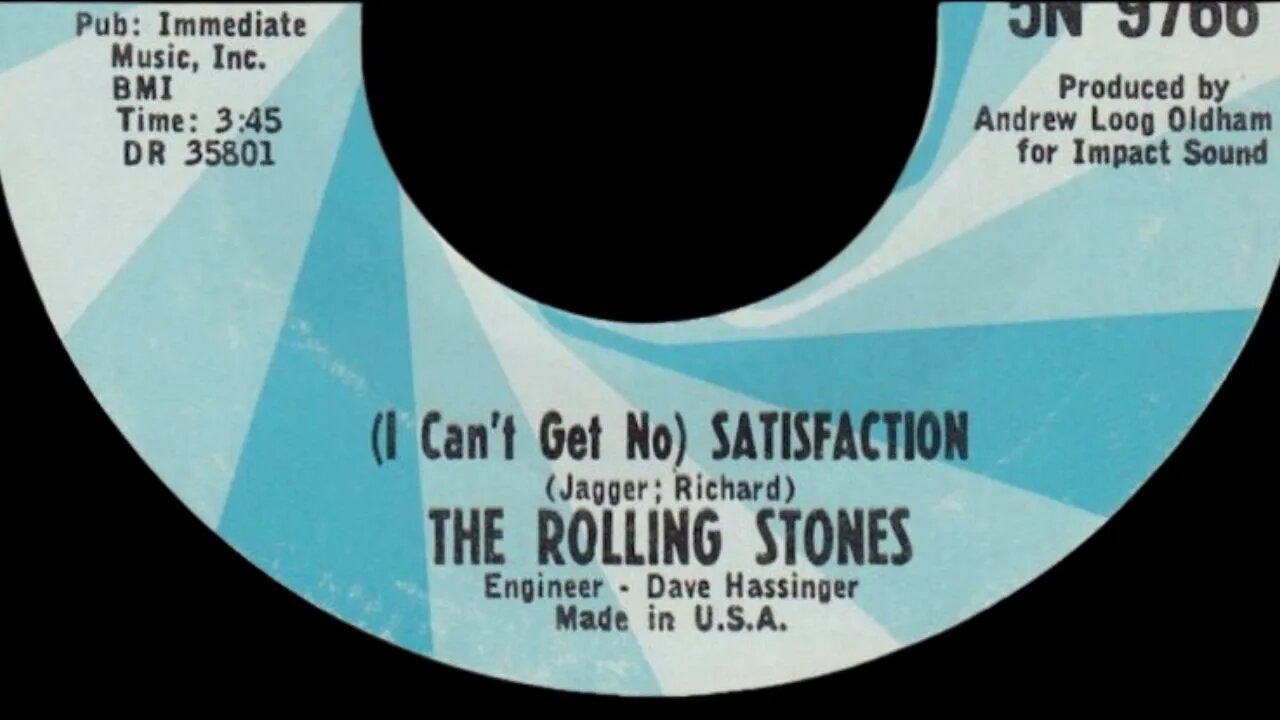Premium Only Content

Unprecedented Success: The Rolling Stones Rule US Singles Chart for 4 Weeks #shorts #rollingstones
In a historic moment for rock and roll, The Rolling Stones achieved their first No.1 hit on the US singles chart with their iconic song "(I Can't Get No) Satisfaction." However, this chart-topping success didn't come without its fair share of controversy, particularly in the United Kingdom, where the song's sexually suggestive lyrics initially limited its exposure.
"(I Can't Get No) Satisfaction" enjoyed an impressive four-week reign at the top of the US singles chart, solidifying The Rolling Stones' status as one of the most influential rock bands in history. Released on June 6, 1965, the song's undeniably catchy guitar riff and Mick Jagger's powerful vocals struck a chord with listeners, launching the band into mainstream success.
Across the pond, a different story unfolded. Due to the perceived explicitness of the lyrics, the BBC initially refused to play "(I Can't Get No) Satisfaction" on the radio, which only fueled its rebellious appeal. In response, the song found an unlikely home on pirate radio stations, which were willing to embrace its provocative nature.
Despite the controversy surrounding the song, "(I Can't Get No) Satisfaction" quickly became a cultural phenomenon, defining a generation and embodying the spirit of 1960s counterculture. Its rebellious energy and relatable lyrics resonated with millions, making it an enduring anthem of frustration and disillusionment.
Beyond its chart success, the song's socio-cultural impact cannot be underestimated. It challenged social norms and paved the way for honest discussions about sexuality in mainstream music, ultimately pushing boundaries and expanding artistic freedom for future generations.
"(I Can't Get No) Satisfaction" marked a turning point in The Rolling Stones' career and altered the music landscape forever. Despite initial controversy in the UK, the song's irresistible appeal and rebellious spirit propelled it to the top of the charts in the United States. Today, it stands as a timeless classic, reminding us of the power of music to break barriers, spark conversations, and capture the essence of an era.
-
 1:43:44
1:43:44
MTNTOUGH Podcast w/ Dustin Diefenderfer
16 hours agoEddie Penney: DEVGRU to Single Dad of 3 Overnight | MTNPOD #130
222 -
 1:28:57
1:28:57
Kim Iversen
2 hours agoSomeone Stole Kim's Identity — And Bought a Car! | Dr Drew Pinsky On Sex, Drugs & Censorship
23.4K17 -
 1:07:00
1:07:00
TheCrucible
2 hours agoThe Extravaganza! Ep. 26 (with special guest host Rob Noerr) 8/25/25
54.9K5 -
 7:35
7:35
Tundra Tactical
1 hour agoI Can’t Believe I’m Saying This… 2011’s Are Actually COOL Now?! 🤯
3.1K1 -
 LIVE
LIVE
Wayne Allyn Root | WAR Zone
4 hours agoWAR Zone LIVE | 25 AUGUST 2025
103 watching -
 LIVE
LIVE
Outspoken with Dr. Naomi Wolf
3 hours ago"CPA/Whistleblower Sam Antar Identifies Millions in Fraud Behind Mamdani Campaign"
124 watching -
 41:26
41:26
Kimberly Guilfoyle
3 hours agoMaking DC Safe Again, Live with Daily Signal's Tyler O'Neil | Ep249
74K22 -
 6:13:58
6:13:58
Dr Disrespect
7 hours ago🔴LIVE - DR DISRESPECT VS. JEAN-CLAUDE VAN DAMME - HITMAN
69.1K12 -
 32:43
32:43
Uncommon Sense In Current Times
4 days ago $0.75 earnedAre Women’s Sports Under Attack? | Penny Nance on Protecting Title IX & Biblical Truth
19.5K -
 LIVE
LIVE
LFA TV
23 hours agoLFA TV ALL DAY STREAM - MONDAY 8/25/25
899 watching